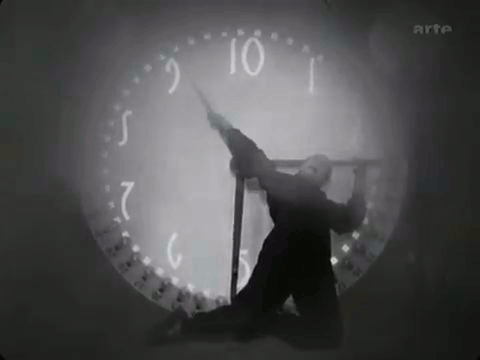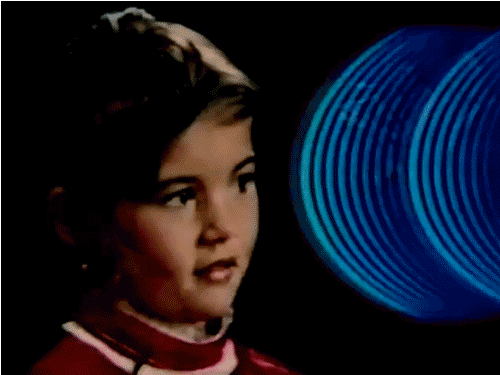Maybe it’s the short solstice-adjacent days that darken my mood. Or maybe the holiday weather in Manitoba that’s colder than the north or south poles, or parts of Mars. Or staggering around my mother’s house, missing a father with whom I enjoyed my final fun memories this time last year.
Whatever… some welcome space for rest and reflection has not resulted in a more hopeful outlook for learning technology. Reading Audrey Watters’ “The Stories We Were Told about Education Technology in 2017” makes it clear that troubling developments in the wider culture, digital media hurtling us wildly into unknown and unwanted places, are all too relevant with respect to our field. A sample from “The Weaponization of Education Data”:
…whether they’re “all in” on “personalized learning,” many schools are adopting analytics and surveillance technologies to monitor and predict student behavior: to identify cyberbullying and suicide threats; to recommend what students should be reading; to recommend what lessons students should be working on; to ascertain if teachers should be awarded tenure; to determine school bus routes; to identify learning disabilities; to identify college students who are struggling with classes; to identify K–12 students who are struggling with classes; to recommend students enroll in certain courses or pursue certain degrees; to help colleges decide who to admit in the first place. “Can you predict your students’ final grade at the start of the course?” Technológica de Monterrey asked on its website, “Yes, you can with Artificial Intelligence.” “Will You Graduate?” asked an article in The New York Times. “Ask Big Data.”
Education technology, as a field and as an industry, places an incredible amount of faith in data and algorithms to address social problems that are incredibly complex.
Another year-end review by Bryan Alexander only deepens the sense of despair:
tl;dr version? Globally, humanity is getting used to a digital world that’s drastically unequal, spoiled by sociopathic trolls, often unreliable, increasingly expensive, thoroughly surveilled by states and firms, and sometimes censored at multiple levels. We’re growing into a caste system in America, and higher ed is completely complicit. Indeed, academia plays a key role in producing, reproducing, and policing the caste system. Colleges and universities are shrinking and getting more expensive, bloating a massive student debt load into the future.

That all said, knowing much more could be said, fatalistic inaction sounds like a real drag. So I look for inspiration from peers, and while Twitter can be a psychic cesspool it is also a fairly reliable reminder that we are not alone in these concerns, that many of us are grappling with ways to deal.
Somewhere in the stream, I faved a Tweet by Autumm Caines, commenting on a Future Trends Forum session featuring Mike Caulfield concerning digital literacy:
<3
I do think it needs to be in the curriculum.
I worry that we are talking about this in IT, the Library, CELT offices and the like but not enough in classes and programs.#FTTE
— Autumm Caines is a Liminal Space (@Autumm) December 21, 2017
Autumm nails it. The emergence of digital media represents foundational shifts in how knowledge is constructed, gathered and disseminated. One would think this transformation would be of vital interest across higher education, yet all too often it remains the domain of the specialists that she mentions. When considered within the curriculum, it is usually by specialists in computer science, media studies, digital humanities, etc… Elsewhere, it is evidently fine for a modern scholar to proclaim “I don’t do technology”, to accept the logic of surveillance capitalism as it is, whatever the effects on scholarship or the platforms where we teach, learn, communicate.
Welcome to the Matrix, where academics gift private companies our intellectual property. Where we volunteer our peer review labour and editorial oversight. Where our universities then pay them through the nose for the privilege of accessing our work. Where we pretend this is fine https://t.co/jC4e47m28s
— Rajiv Jhangiani (@thatpsychprof) December 14, 2017

“Please don’t feel threatened or intimidated by him while he listens to the discussion of your stories –in fact, he is just an educational administrator and therefore has no ties to the creative process whatsoever. Feel free to treat him as you would any other intrusive bureaucrat and representative of institutional hierarchy and oppression.” — Adrian Jones Pearson, Cow Country
Of course, positioned as a learning technologist, an educational administrator at that, there are real limits and risks in advocacy around curriculum. Even support for things like open textbooks can be seen as unwelcome, and I’ve learned to tread carefully.
I’ve been looking for more ways to integrate digital literacy conversations into my work. I sneak discussions about counter-surveillance, VPN’s and trackers into a workshop on using H5P tools. I have come to realize that collecting student consent forms for online activity can be useful opportunities to engage.
So I waded into that #FTTE discussion expressing my hopes and fears there, receiving responses from Autumm, Mike, and Claire Coulter where they shared their own approaches.

I'm working on a FYS in this area…but with such a small number of students admitted, the reach won't be far. Fac Dev…yes, but not sure about where you are all at, but sometimes feels like we are only hitting the same 10%. Let's build something together!
— Claire Coulter (@CCoulter11) December 22, 2017
Due to issues I didn't get to talk much about it in the presentation, but we've had a lot of luck bringing this into classes. That said, teachers really want materials to use if they are going to teach something out of comfort zone.
— Mike Caulfield is tired, so tired. (@holden) December 22, 2017
I can see how faculty would ask for resources when faced with this but I just have to wonder how much that really impacts pedagogy. Is that anything more than textbook adoption.
(Not that there is anything wrong with that but can there be more? & how much work is it?)
— Autumm Caines is a Liminal Space (@Autumm) December 22, 2017
I really like this idea of designing assignments that can be adapted to different disciplines, themes, subjects, but that give opportunities to develop/work on #digciz
— Sundi Richard, who was in fact, born on Sunday (@sundilu) December 26, 2017
It was around this time I began to want to write this post, even though I didn’t know what I wanted it to say. It was cool to receive pointers to things like Autumm’s emerging faculty development work for #DigPINS (Digital Pedagogy, Identity, Networks and Scholarship), and when Claire suggested we build something together, I can’t say what she had in mind… But it seems to me that at the very least we need to see each others’ stuff when we work with faculty and students, and hopefully to build upon it. To that end, hopefully 2018 will see more of the work we do being blogged outside the churning maw of Twitter, even if it results in messy posts such as this one. Or maybe we find some other not-so-creepy place to collect our work and let it grow.
I am frequently pointing faculty to Mike’s Web Literacy for Student Fact-Checkers, but have not seen local adoption of the techniques he lays out. So I am intrigued by the notion (elaborated by Sundi Richard) of smaller-scale resources or assignments, ready-to-use across disciplines. That strikes me as a development project that many of us can join.
It is all resources
Or
It is all pedagogy
All the way down
Depending on your context
i suppose….
— Autumm Caines is a Liminal Space (@Autumm) December 27, 2017
And of course conversations and development around Media Literacy / Community / Citizenship are only one piece. As learning technologists there is direct, hands-on work we can do to challenge the prevailing logic of platforms:
As more data flows into these companies’ systems and as they use the “network effects” to amass more users and more money, the Web – that other major technology platform, but one without one powerful corporate owner – dwindles. “The system is failing,” its creator Tim Berners-Lee lamented in an op-ed in The Guardian this fall. Mozilla, which once sought to secure a foothold for education on the Web through its Web literacy initiative, announced this year that it was ending its work in digital learning. Silicon Valley has been declaring that “The Web is Dead” for a long time now, of course. More accurately, perhaps, the Web is undead, propped up by Google AdSense and bent to serve the needs of the platform economy.

“If I were a writer… how I would enjoy being told the novel was dead. How liberating, to work in the margins, outside a central perception. You are the ghoul of literature. Lovely.” — Don DeLillo, The Names
There will be much to do here as well. And on a personal level I am extremely excited about efforts to arrange structure and ownership of our open online efforts differently… But this post has sprawled beyond all control already, and I’m not sure how much of what we are planning is ready to share publicly. For another time, hopefully not long before we are ready to fly…

This may be totally daft, but “smaller-scale resources or assignments, ready-to-use across disciplines. That strikes me as a development project that many of us can join.” read in combination with a short note I was writing for myself on indulging in the ds106 Daily Create, and the responses to this tweet/challenge from Chris Gilliard https://twitter.com/hypervisible/status/946822278582603777 has me wondering about the utility of The Daily Create model in this space? Short challenges, from a crowdsourced bank, drop in/out participation, could be incorporated into multiple teaching contexts, builds new resources and community. The Daily “Creepy as F*ck”? Probably a better name is required.
As I say, probably daft, but sharing this bit of brain-fluff case it prompts better ideas from smarter people.
That was quite a thread from Chris G., wasn’t it?
Thanks to CogDog, we do have the Daily Blank framework ready to run: http://splot.ca/splots/the-daily-blank/
Or, the Challenge Bank: http://splot.ca/splots/ds106-assignment-bank/
And I am reminded of the amazing 23 Things for Digital Knowledge: http://www.23things.ed.ac.uk/
Fantastic suggestions, thank you!
So we have the infrastructure, we just need the ideas? That should be easy then…